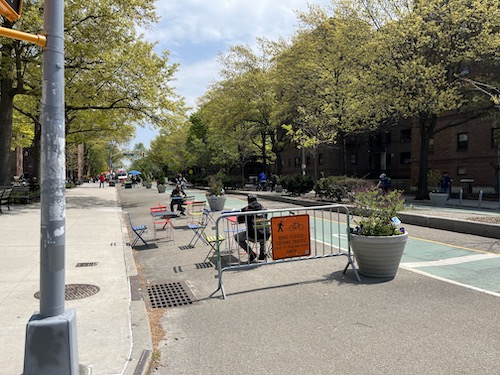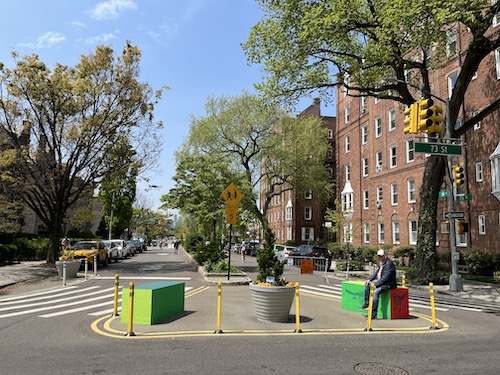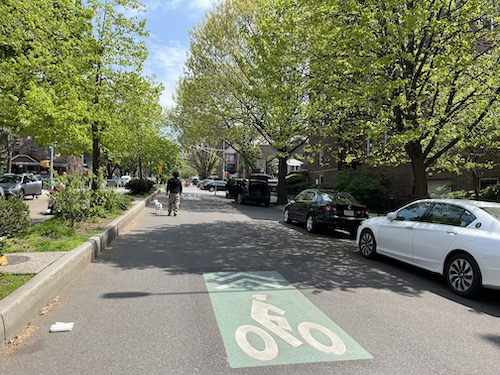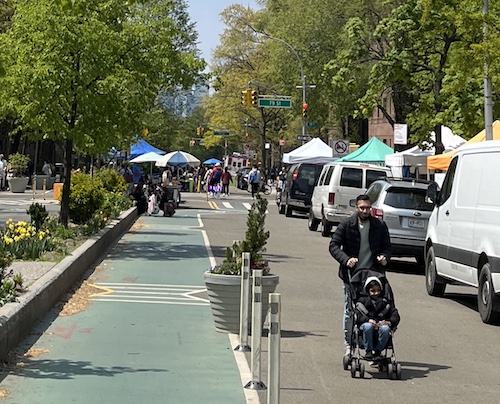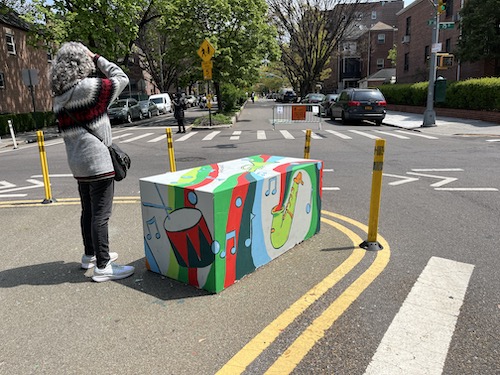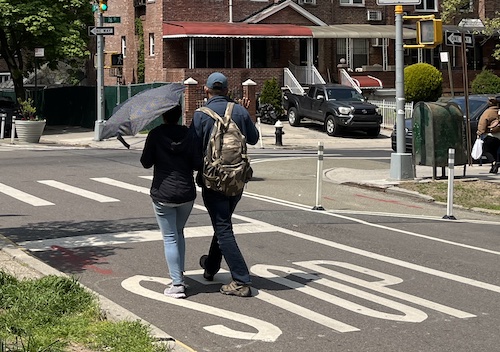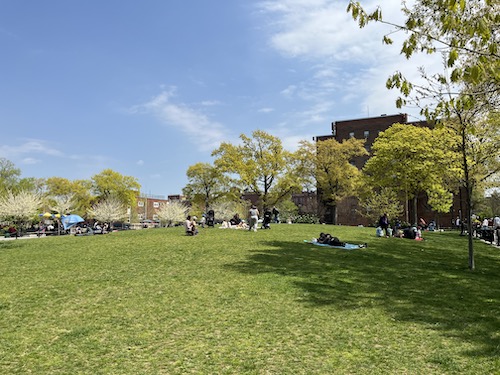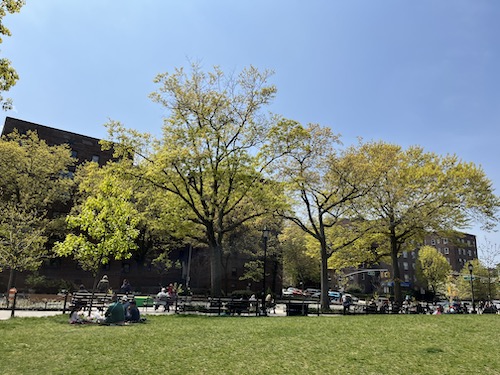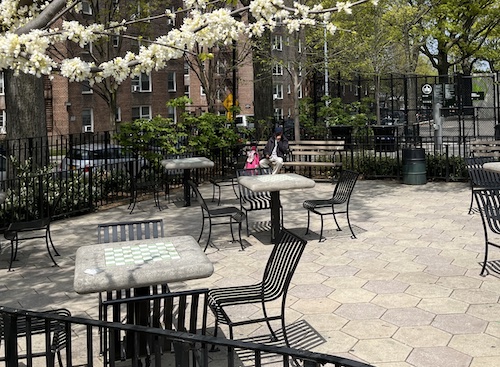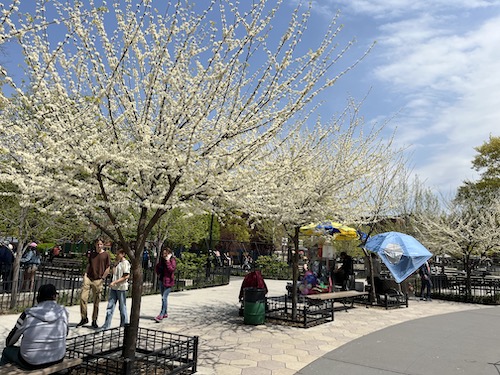The site of an old marine and shortline rail terminal on the East River, at the edge of Williamsburg, Brooklyn, became a state park in 2007. Thirteen years later the state renamed East River State Park in honor of transgender activist Marsha P. Johnson.
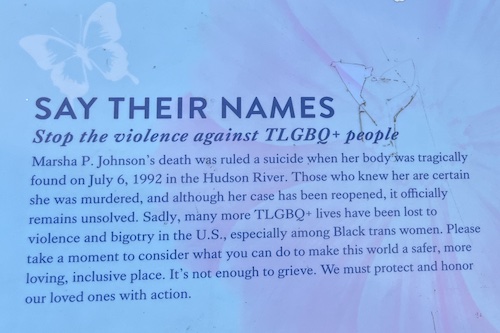
But there's been a lot of change here besides the name. An extremely outdated description at nyctourism.com says this: "East River State Park, otherwise known as the Williamsburg Waterfront, is not fancy: stage, concrete, water...Families can relax amongst historic rail yard remnants, and in the summer, take in family-friendly music and film series."
That doesn't remotely describe today's Marsha P. Johnson State Park, which abuts the unremarkable sports fields of Bushwick Inlet Park. It has some of the fancy trappings that go with our age of reckless real estate development and gentrification, but also exudes a neighborhood-y feel.
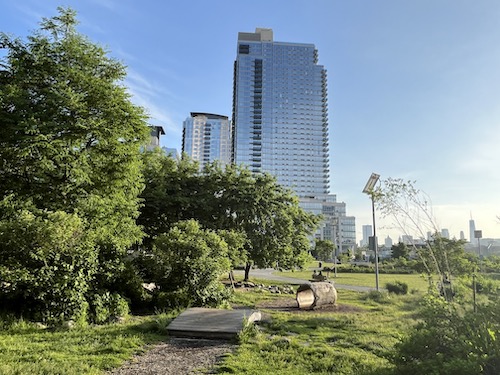
The big benefit of a park in this location is, of course, the waterfront.
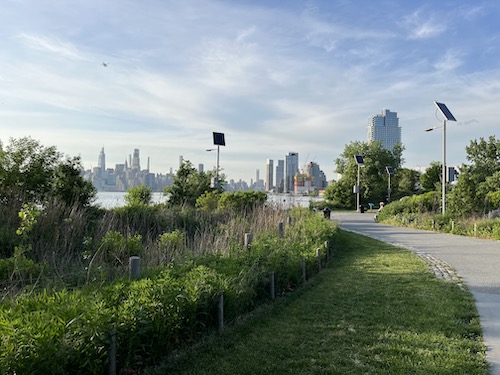
In the upper left of the photo above there's a seaplane, on the way to Boston perhaps.

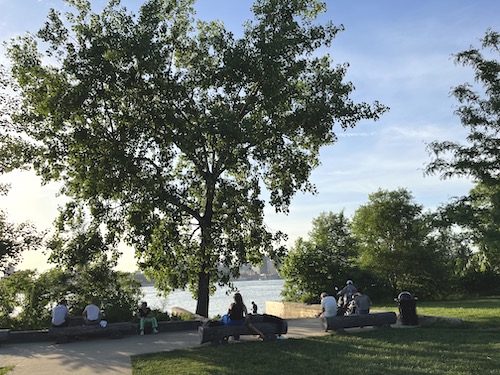
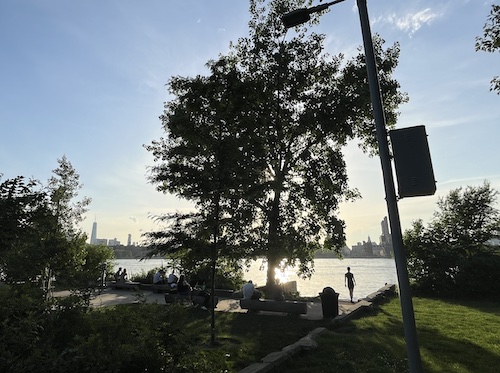
Waterfront aside, there's space here for both family fun and sleepy romance.


Remnants of the site's industrial past flowed together with spring flowers and chalked whimsy on a mid-May visit.

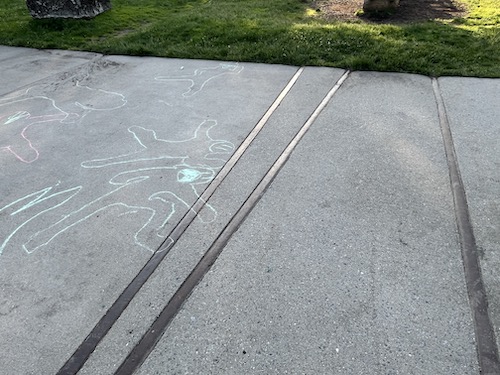
A little wooden train perhaps is meant to suggest the short trains that ran here from the waterfront to the lot or street where cargo could be taken up by vehicles for delivery or processing.
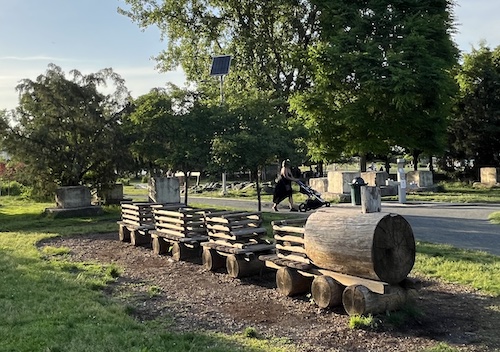
Jumbles of stones make good play spaces.
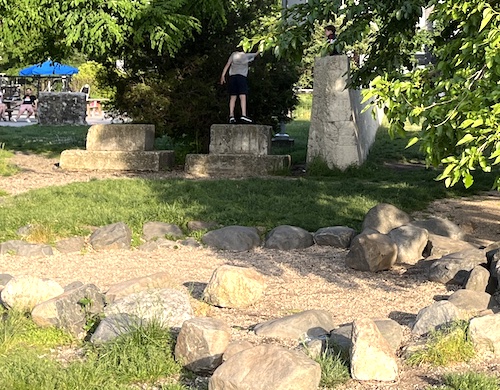
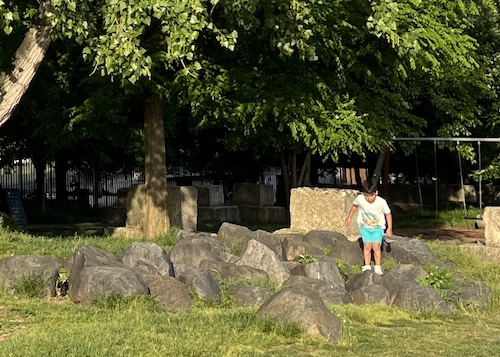
There's fun – and relaxation opportunities – aplenty in this quiet park.


The park's renaming occurred under the Andrew Cuomo administration in 2020. Signage here will tell you that Marsha P. Johnson (1945-1992) was a "Black gay and trans liberation activist, drag queen performer, actress, and sex worker [who]...struggled with mental illness" and lived with HIV/AIDS.
She "was known in the West Village for her charisma, joyfulness, and generosity, while living against great odds...Many called her a saint: Saint Marsha."
After the Stonewall uprising, where she was present, she "moved to the forefront of the Gay Liberation Movement." The "P" in her name, we are told, stood for a motto of hers, "Pay it no mind," which is written over her park's main entrance on Kent Ave.
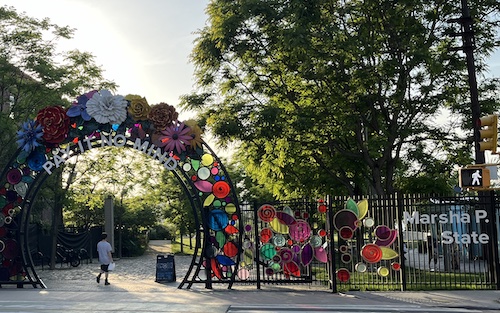
Her body was found in the Hudson River in July of 1992. Uncertainty lingers over whether her death was a suicide or murder.
In recent years New York City has acted to belatedly honor African Americans by naming parks for them. New York State has taken steps in that direction too, and in this case with an African American who was also part of the LGBTQ+ community.
Along the same lines, In March 2024 present governor Kathy Hochul issued a proclamation declaring a Transgender Day of Visibility.
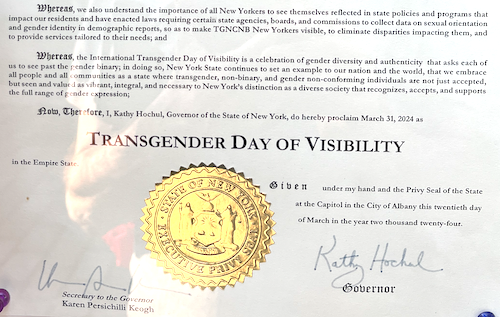
Netflix released a documentary about Johnson in 2017.
)
Hank O'Neal, Public domain, via Wikimedia Commons
Marsha P. Johnson State Park carries only remnants of the site's industrial/commercial past, but history lives on all around Brooklyn. Consider these old stable doors on a nearby street.
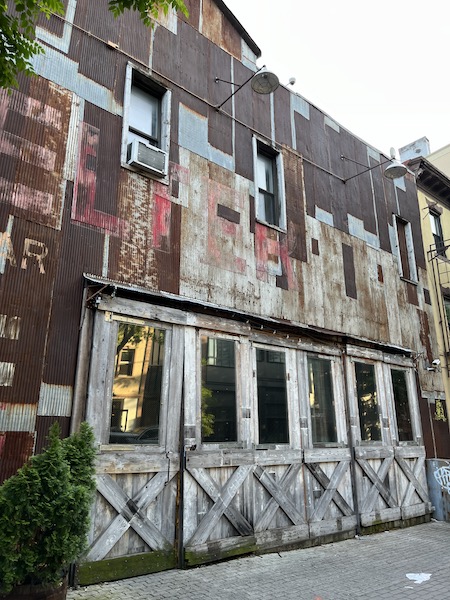
And history is made by all kinds of people. Case in point: Marsha P. Johnson State Park.

All photos © Oren Hope except where noted
